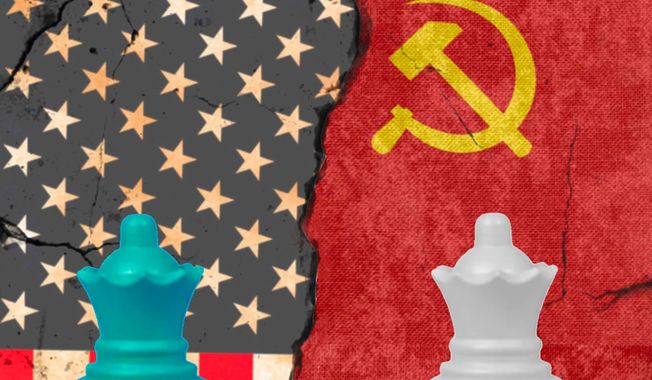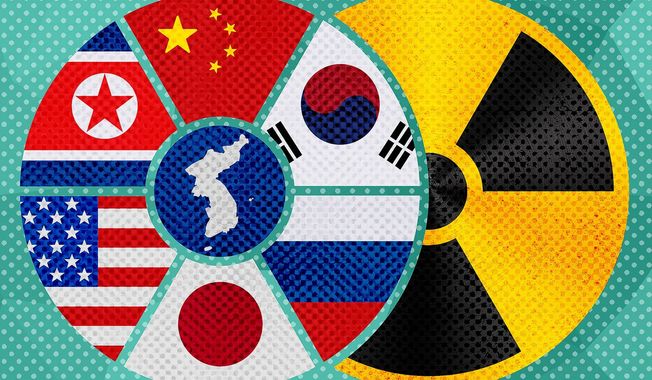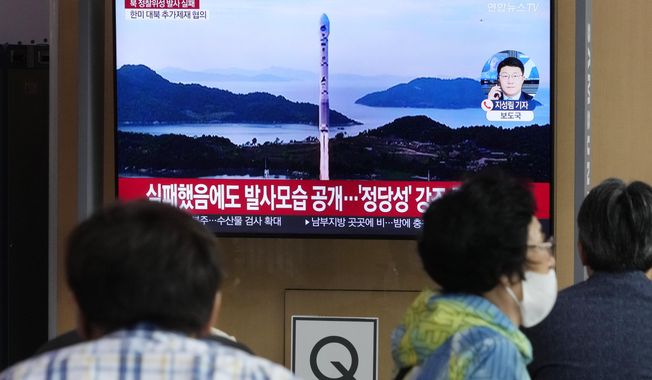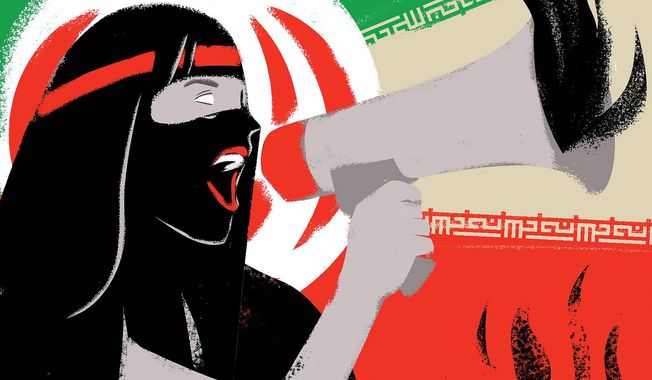Joseph R. DeTrani
Columns by Joseph R. DeTrani
Putin works to get China, North Korea to view U.S. as an enemy
As he tries to recreate the Russian empire, Vladimir Putin has compared himself to Peter the Great. Published April 3, 2024
China’s unique role in ending the first Cold War
Russian leader Vladimir Putin was just reelected in a sham election, adding six more years to his 25-year reign -- from 1999 to 2024 -- of power. Published March 20, 2024
An emboldened North Korea is a threat to the region
North Korea had three successful intercontinental ballistic missile tests in 2023. Published January 31, 2024
A vote for democracy in Taiwan
The Democratic Progressive Party candidate, Lai Ching-te, won Taiwan's Jan. 13 presidential election with over 40% of the vote. Published January 23, 2024
The North Korean existential nuclear threat
On Dec. 18, North Korea successfully launched a solid fuel, road-mobile intercontinental ballistic missile that was assessed to travel over 15,000 kilometers (9,320 miles), capable of targeting the entire U.S. Published January 4, 2024
Preventing conflict in the South China Sea and the Korean Peninsula
At a Track 2 conference (former officials and academics) with China on U.S.-China relations, convened after the Asia-Pacific Economic Cooperation, or APEC, conference in San Francisco, one of the subjects discussed was the need to avoid military confrontation. Published December 21, 2023
Restoring trust in U.S.-China relations
The Biden-Xi summit earlier this month was a step in the right direction. But it was only a step. Published November 29, 2023
A nuclear-free North Korea requires U.S.-China cooperation
This year is the 20th anniversary of the Six-Party Talks, established in 2003 to resolve the nuclear issue with North Korea. Published November 8, 2023
Dealing with an emboldened Iran
The terrorist attack on Israel, which killed more than 1,400 Israelis and foreigners and injured thousands, with over 200 hostages, was aided by a complicit Iran that provided training, funding and support to Hamas. Published October 23, 2023
Reflecting on the 70th anniversary of the U.S.-South Korea alliance
This month marks the 70th anniversary of the Mutual Defense Treaty between the U.S. and South Korea, officially the Republic of Korea, signed Oct. 1, 1953. Published October 10, 2023
Remembering September 11, 2001
We will never forget the 2,983 men, women and children killed in the Sept. 11, 2001, attacks on the World Trade Center, the Pentagon and United Airlines Flight 93 -- or the Feb. 26, 1993, bombing of the World Trade Center. Published September 11, 2023
Autocracy or democracy: Let the people decide
The Camp David Summit of the U.S., South Korea and Japan was emblematic of an alliance that showed that democracies with the rule of law are responsive to the people and will unite to defeat a threatening adversary. Published September 7, 2023
China should play larger role in getting North Korea to scrap nuclear program
In Track 2 discussions with the Chinese, when North Korea is discussed, the 2003-2009 Six-Party Talks are cited by the Chinese participants as a model for resolving the nuclear issue with North Korea. Published August 15, 2023
Instability in Northeast Asia
It should be obvious that North Korea's recent launch of three intercontinental ballistic missiles in 2023 is a message not only to the U.S. but also to China and the rest of the region. Published July 15, 2023
A less confrontational China
Chinese President Xi Jinping's decision to meet with visiting Secretary of State Antony Blinken was a wise decision. It conveyed to the world that China wants stability in its relationship with the U.S., concerned that Sino-U.S. tension could and would affect global stability. Published June 25, 2023
Nuclear-armed North Korea threatens all nations
The joint statement of the Xi Jinping-Vladimir Putin summit expressed concern about the situation on the Korean Peninsula. That was an understatement. North Korea's nuclear and missile programs are a threat to the region and the world. And China and Russia are doing nothing to address this nuclear threat. Published April 3, 2023
We’ve entered a new Cold War with China
Although bilateral trade with China in 2022 increased to a record $690.6 billion, bilateral relations deteriorated to their lowest level since the normalization of relations in 1979. Published March 7, 2023
U.S. has failed to halt North Korea’s pursuit of nuclear weapons
In 1991, President George H.W. Bush ordered the withdrawal of all U.S.-based tactical nuclear weapons from South Korea. Published February 2, 2023
Defuse the current impasse with North Korea
The current unprecedented escalation of tension with North Korea could result in planned or accidental conflict on the Korean Peninsula, involving conventional and possibly tactical nuclear weapons. Published October 19, 2022
Iranian protesters deserve the support of all countries, especially the U.S.
The death of Masha Amini, the 22-year-old lawyer who died in the custody of the morality police, has sparked an outcry from tens of thousands of Iranians. Published October 6, 2022























